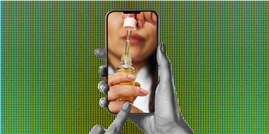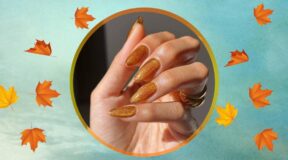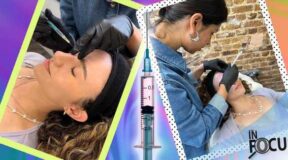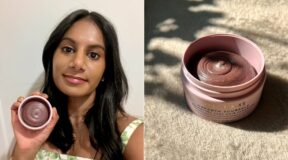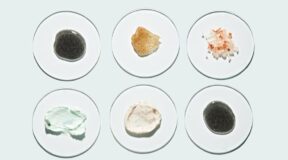Spend five minutes on skinTok—a corner of TikTok dedicated to all things skin—and you’ll quickly learn its language. The ideal video has a big reveal: Skincare enthusiasts dangle the end result—skin that’s radiant with an almost wet-looking gleam—against photos of acneic “before” faces and an infinite reel of recommendations for gentle cleansers, vitamin C serums, and DIY hacks. There’s an aspirational quality to these videos, but they’re also prescriptive in nature. Consumers tell other consumers what to do, what to try, what to buy—and this advice can be rife with bad info. On skinTok, the algorithm allows anyone to be a viral skincare “expert.” Except, of course, for the fact that they’re not.
The real experts on skinTok are also the real experts IRL: dermatologists. This new breed of internet derms and derm residents have hundreds of thousands—even millions—of followers and share videos of themselves having conversations about skin conditions, discussing beauty marketing terms like “clean” and “natural,” debunking common skincare misconceptions, addressing viral trends like “slugging,” and ranking their favorite products. Fluent in influencer, these doctors dance around clinics with a choreographed flair, create content with trending sounds, and have mastered the fine art of posing with products in a post.
A post shared by Dr. Muneeb Shah (@doctorly)
In comparison to the serious bedside manner we’ve come to expect from medical professionals, there’s an absorbing and even playful quality to these characters. Sometimes—and probably because we’re not used to seeing our physicians display such intimate candidness—the proliferation of their presence online can feel…off. At the most basic level, it’s objectively weird to see a medical professional make viral memes or sing into their cameras about SPF. These people are real-life doctors? How do they have time to grow a following while also treating patients and doing all the doctorly things that doctors do?
But here’s the thing—the majority of the Insta-famous or almost-famous dermatologists who I spoke to for this story said that they don’t think of themselves as influencers at all. They’re more likely to refer to themselves as “educators” or “myth-busters,” and many of them felt that they needed to grow their social media personalities not for self-promotion (or for a Revolve fest invite) but to fight the wildfire-like spread of skin-related misinformation online.
“Someone will post something untrue or unsafe and I’ll just start getting tagged in comments,” dermatology resident Muneeb Shah, DO, who has nearly 15 million followers on TikTok, told me, specifically referencing a new “trend” where people put lemon juice directly on their skin (which, btw, is bad skincare advice). These people aren’t sinister. They usually have a passion for skincare, so they google something or ask a friend for suggestions and then share incorrect information with the masses.
Source: Read Full Article
